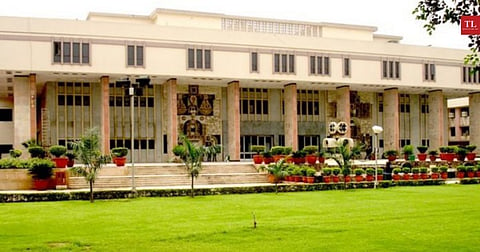

New Delhi, Feb 17 (PTI) The Delhi High Court has said that malicious falsehood cannot become freedom of speech and directed the competitor of a coaching institute to take down portions of its YouTube video alleging falsities against its rival.
Justice Asha Menon, who was dealing with a lawsuit by FIITJEE against the defendant Vidya Mandir Classes and others, said that while some latitude is to be given for hyperbole and commendatory expression, there can be no license to anyone to denigrate the competitor.
The judge stated that care is to be exercised to avoid disparagement of another's products or denigration of their goodwill and reputation.
While engaging in advertising once own products, care is to be exercised to avoid disparagement of another's products or denigration of the goodwill and reputation built by a competitor. Malicious falsehood cannot become freedom of speech, the court said in its order passed on February 16.
In the plea, the plaintiff sought a direction to the defendants to immediately take down the false, frivolous, defamatory, and scandalous YouTube videos against it.
Justice Menon stated that in the video in question, the defendant has used very offensive words against the plaintiff, such as kidnapping, which are inappropriate, ex-facie untrue, and cannot be allowed to remain.
The court also noted that the plaintiff and the defendants are in the field of education and while traditionally, transfer of knowledge has been considered as the highest of all human action and does not involve an accumulation of wealth, one is hesitant to use the term 'business rivals' to describe the plaintiff and the defendants, but since both are incorporated entities, there appears to be no other apt word to describe them.
The judge observed that criticizing the plaintiff's refund policy based on the decisions of the Consumer Disputes Redressal Forum prima facie did not appear to be defamatory and the criticism of their various programmes of the plaintiff was also only in the nature of competitive advertisement but, to accuse someone of kidnapping, extortion, and so on is different .
Use of such strong words is inappropriate, to say the least. It directly impacts the parent who would be discouraged with such a negative description of the plaintiff. These words ex-facie are untrue. These words cannot be allowed to remain, the court said.
While some latitude is to be given for hyperbole and commendatory expression for oneself with an attempt to show down the competitor, there can be no license to anyone to denigrate the competitor. The courts have protected parties who have been at the receiving end of such negative advertisements, it added.
The court said that the defendants will have to take down the objectionable sentences in the video and ensure that no version with such content which depicts the plaintiff as a set of criminals is in circulation.
"Very offensive words (were used) alleging that the plaintiff would 'kidnap' and take the students 'hostage' and put them under such pressure and indulge in 'extortion' allegations that are serious, as indicating that the plaintiff has no qualms in indulging in crime for money," stated the court.
Accordingly, an affidavit shall be filed by the defendants to this effect that they have edited out the aforementioned offending words and sentences that have been used in the video. The same be filed within four weeks, it ordered.
The court said that the defendants have established that the balance of convenience was in their favour and refused to direct that the entire video be taken down.